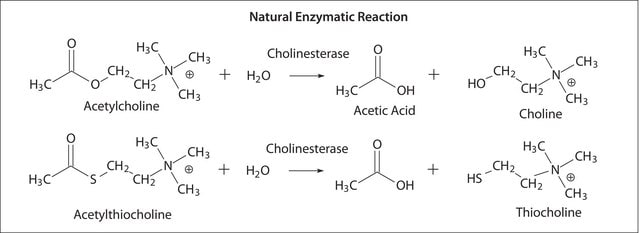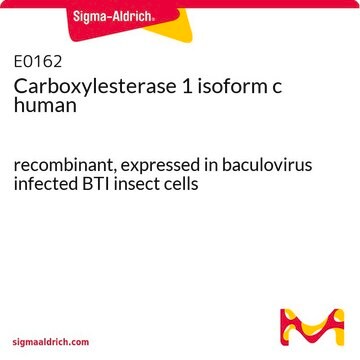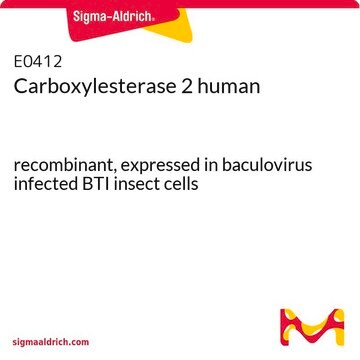B4186
Butyrylcholinesterase human
vial of ≥4 units
Synonym(s):
Acylcholine acyl-hydrolase, Choline esterase, butyryl, Pseudocholinesterase
About This Item
Recommended Products
form
powder
Quality Level
specific activity
≥50 units/mg protein
packaging
vial of ≥4 units
UniProt accession no.
storage temp.
2-8°C
Gene Information
human ... BCHE(590)
Looking for similar products? Visit Product Comparison Guide
Application
Biochem/physiol Actions
Unit Definition
Analysis Note
Signal Word
Danger
Hazard Statements
Precautionary Statements
Hazard Classifications
Resp. Sens. 1
Storage Class Code
11 - Combustible Solids
WGK
WGK 3
Flash Point(F)
Not applicable
Flash Point(C)
Not applicable
Regulatory Listings
Regulatory Listings are mainly provided for chemical products. Only limited information can be provided here for non-chemical products. No entry means none of the components are listed. It is the user’s obligation to ensure the safe and legal use of the product.
JAN Code
B4186-BULK:
B4186-1VL-PW:
B4186-VAR:
B4186-1VL:
Choose from one of the most recent versions:
Certificates of Analysis (COA)
Don't see the Right Version?
If you require a particular version, you can look up a specific certificate by the Lot or Batch number.
Already Own This Product?
Find documentation for the products that you have recently purchased in the Document Library.
Customers Also Viewed
Our team of scientists has experience in all areas of research including Life Science, Material Science, Chemical Synthesis, Chromatography, Analytical and many others.
Contact Technical Service









